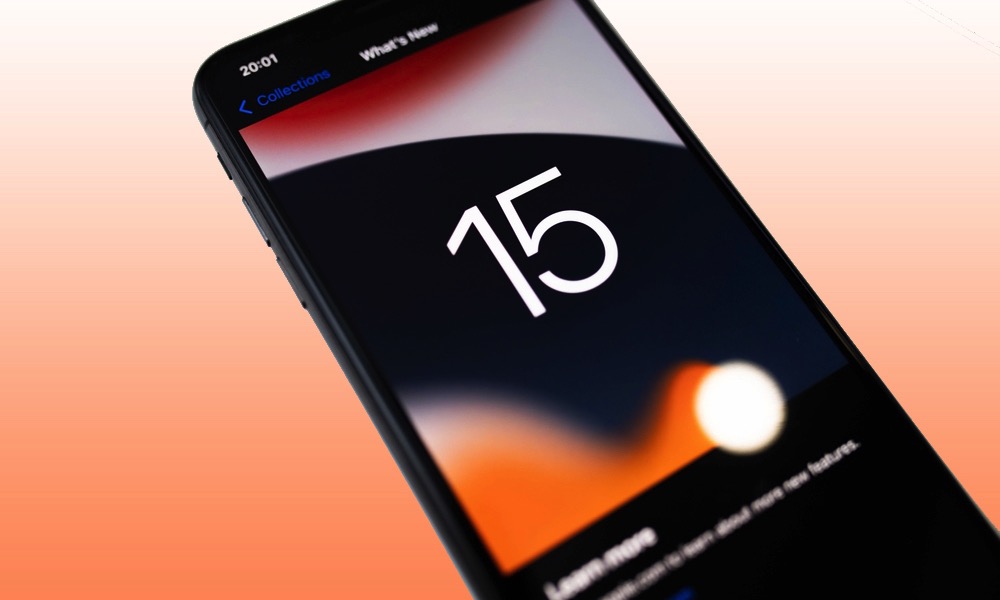Apple Releases iOS 15.3 | Why You Should Update Your iPhone Right Away
 Credit: Velimir Zeland / Shutterstock
Credit: Velimir Zeland / Shutterstock
Toggle Dark Mode
This week Apple quietly released iOS 15.3, its latest major point release, and although it doesn’t offer much in the way of new features, there are at least ten good reasons why you may want to update sooner rather than later.
The lack of any user-facing benefits is probably why this release came along without much fanfare, but it’s actually more important than it appears on the surface.
Now that Apple has delivered almost everything promised for iOS 15, it’s time to hunker down and focus on improving stability, performance, and security — and that’s precisely what iOS 15.3 does.
With all the security threats that are targeting iPhone users these days, Apple has found itself in a much more frantic cat-and-mouse game.
No sooner does it close one set of exploits than security researchers find a whole new set, and these aren’t always found only by good “white hat” hackers that report them to Apple, but also more insidious groups that try to take advantage of them.
It’s also not just about the scammers who live on the dark web. In recent years, professional spyware developers like NSO Group and others have gotten into the game, using the deep pockets of foreign governments to create tools that have been able to slice through an iPhone’s security almost effortlessly.
While these are ostensibly supposed to be used to fight the bad guys, it’s become clear that who the “bad guys” are is ultimately up to whatever government is in power.
Important Security Fixes in iOS 15.3
So, it’s fair to say that we live in a time when you should pretty much assume that every iOS update packs in fixes for one or more dangerous security vulnerabilities. That’s certainly been the case with the last few iOS releases, and iOS 15.3 is no exception.
To put it bluntly, we’re long past the days when it would be considered wise to sit back with a “wait and see” approach to new iOS updates. The security holes that hackers keep finding are far more dangerous than the risk of encountering a few minor glitches with an iOS update.
Plus, after nearly fifteen years, iOS has become remarkably stable. Even the very first developer betas of a major new iOS version that come out right after WWDC each June work surprisingly well, and every point release goes through the same sort of developer and public beta cycle before it’s available to the public. The chances of encountering show-stopping bugs are slim.
Granted, it’s also fair to say that the chances of being targeted by industrial spyware like Pegasus are pretty slim for most people, but those are far from the only threats out there, and it’s the hackers working in the darker places that are far more concerning, and some of these vulnerabilities are an open invitation right into some of your most personal data.
For example, iOS 15.3 fixes a flaw in Safari that can disclose information about your browsing history and even info from services you’ve logged into, such as Google, YouTube, Amazon, and WordPress.
Like most browsers, Safari allows sites like Google to store information in a database on your iPhone, iPad, or Mac. Normally, sites should only be able to read the information they put there, but researchers found a flaw in Safari 15 that could disclose some information from these databases to other websites. Generally, that’s only the names of the databases, but even these can include info such as the name of your Google account. This allows untrusted or malicious websites to track your identity, even across multiple accounts.
iOS 15.3 fixes that, of course, but it doesn’t stop there. According to Apple’s security content notes for iOS 15.3, there are at least nine other serious vulnerabilities that are patched in this latest update.
This includes an iCloud bug that could allow an application to bypass normal security restrictions and access a user’s files, and several ways in which a malicious application could gain full “root” privileges to access everything stored on your iPhone, or execute arbitrary code to do any number of things that it’s not supposed to be doing.
In one case, Apple even notes that it is “aware of a report that [an] issue may have been actively exploited,” meaning that some group of hackers out there are already using it to deliver malware or spyware to devices running earlier versions of iOS 15.
Other Fixes in iOS 15.3
It’s also not just about security vulnerabilities. While Apple doesn’t go into specifics, our testing has shown that iOS 15.3 fixes a few other smaller issues, including a problem with HomeKit Secure Video cameras not refreshing their thumbnails, which seemed to appear around the same time that the first iOS 15.3 beta came out last month (it was fixed in the second beta).
iOS 15.3 also resolves a longstanding issue where multiple vaccination cards weren’t accepted if they were too similar. For example, attempting to add a second card for a spouse or partner who received the same vaccinations on the same dates — not necessarily an uncommon scenario — would result in Apple Health declaring that as a duplicate card and refusing to add it. It appeared as though iOS 15.0–15.2 were only checking the vaccination info and not the name or date of birth on the card.
The good news is that this was fixed in the first iOS 15.3 beta released last month, and now it’s available in the public release, making it easier to carry around proof-of-vaccination cards in Apple Wallet for family members that may not have their own iPhones.







